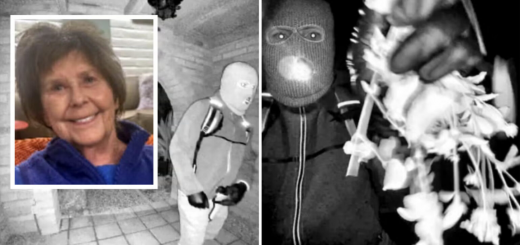Devout Christian Wins $21.5 Million in Religious Discrimination Case (VIDEO)
Devout Christian Wins $21.5 Million in Religious Discrimination Case
For over a decade, Marie Jean Pierre quietly and diligently worked as a dishwasher at the Conrad Miami Hotel, later acquired by Hilton. She became a trusted employee known for her strong work ethic, commitment, and unwavering faith. Yet, her devotion to her religion eventually led to a shocking ordeal that ended with a landmark $21.5 million legal settlement.
A Decade of Faithful Service
Marie Jean Pierre, a Haitian-born missionary and devout Christian, took great pride in her work. For ten years, the now 60-year-old dishwasher maintained her position without complaints, embodying humility and dedication. However, her commitment to her religious beliefs became a point of contention with her employer.
Pierre adhered to her faith with steadfast conviction, particularly the observance of Sunday as a day of worship. For years, she had arranged to swap shifts with co-workers to ensure she could attend church without neglecting her responsibilities. This arrangement worked smoothly for seven years—until a management change disrupted the status quo.
The Turning Point
When a new manager took over at the hotel, Pierre’s long-standing arrangement to cover her Sunday shifts came under scrutiny. Despite her efforts to find substitutes for her Sunday work, the new management insisted she report to work on the day she had always reserved for worship. Her refusal to comply, rooted in her deeply held religious convictions, eventually led to her termination.
Pierre’s dismissal marked a turning point. The reserved and humble worker, who had quietly carried out her duties for a decade, decided to take legal action.
Fighting Back
Believing she had been wrongfully terminated for practicing her religion, Pierre filed a lawsuit against the hotel for religious discrimination. Under federal law, employers are required to make reasonable accommodations for employees’ religious practices unless doing so imposes undue hardship on the business. Pierre argued that her employer’s refusal to accommodate her Sunday worship was not only unreasonable but a clear violation of her rights.
Her attorney, Marc Brumer, emphasized that Pierre had never asked for special treatment. Instead, she had gone out of her way to ensure her Sunday absences did not disrupt operations by arranging for others to cover her shifts. “They accommodated her for seven years without issue,” Brumer stated. “They could have continued to do so, but instead, they chose to fire her.”
The Verdict
After hearing the case, a jury awarded Pierre $21.5 million in damages, including $35,000 in back pay and $500,000 for emotional distress. The settlement sent a powerful message about the importance of respecting employees’ religious rights.
“They set her up for failure by marking her as absent despite her efforts to ensure coverage,” Brumer said. “This case is not just about Marie—it’s about standing up for all workers facing religious discrimination.”
While the jury’s decision highlighted the gravity of Pierre’s situation, the federal court’s cap on punitive damages meant she would only receive a fraction of the amount awarded. Her attorney estimated that Pierre would likely receive $500,000 from the settlement.
A Higher Purpose
Despite the significant financial award, Pierre remained true to her values, stating that money was never her motivation. She announced her intention to donate her settlement to orphans in Haiti, explaining that her faith and her calling as a missionary were her guiding principles.
“This isn’t about winning the lottery,” Pierre said through a translator. “The earth and the skies belong to God. I love God, and Sundays are for honoring Him.”
Her attorney echoed her sentiments, explaining that the case was about “righting a wrong” rather than financial gain.
Hilton Responds
Hilton, the hotel’s parent company, pushed back against the jury’s decision, maintaining that they had accommodated Pierre’s religious practices throughout her employment. In a statement, Hilton expressed disappointment with the outcome and argued that their actions complied with federal laws governing workplace accommodations.
“During Ms. Pierre’s 10 years with the hotel, we made multiple efforts to accommodate her personal and religious commitments,” the company stated. “We do not believe the verdict is supported by the facts or the law.”
A Broader Message
Marie Jean Pierre’s case underscores the complex relationship between corporate policies and individual rights. It serves as a reminder of the legal protections afforded to employees, particularly when it comes to religious practices.
For seven years, Pierre had successfully balanced her job and her faith, proving that accommodations could work without disrupting operations. Her termination highlights how sudden management changes or stricter policies can create unnecessary conflict and lead to costly legal battles.
This case also demonstrates the importance of standing up for one’s rights. Pierre’s decision to challenge her dismissal not only secured justice for herself but also set a precedent for others who may face similar discrimination.
Moving Forward
Although the financial settlement was significantly reduced, Pierre expressed no regrets. Her focus remained on using whatever money she received to help those in need, staying true to her calling as a missionary. Her story has resonated with people across the globe, inspiring discussions about workplace rights and religious freedoms.
For Pierre, Sundays will continue to be a day of worship—a sacred practice that no employer, regardless of power or influence, can take away.




























